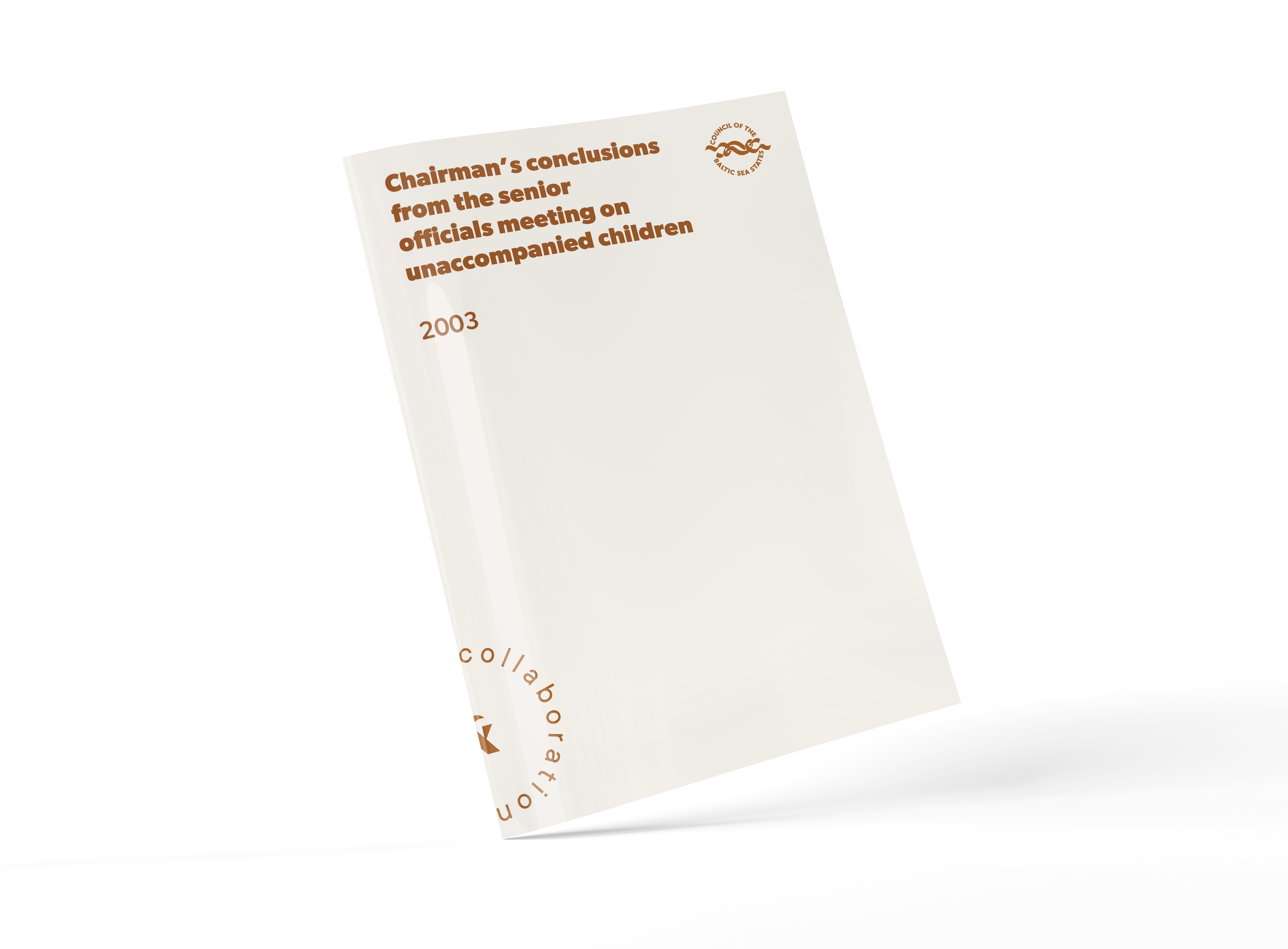
At the Senior Officials Meeting on Unaccompanied Children from the Region of the Baltic Sea States, held February 10th to 11th 2003 in Stockholm, participants discussed the issue of Interministerial and Interagency Co-operation for Improved Assessment, Care and Reintegration of Unaccompanied Children within and from the region. The report includes the chairman’s conclusions in English and Russian, all background documents, address list of participants, welcoming speeches, keynote speeches, and concluding speech. Many documents in the report are in both English and Russian. The following commitments were agreed upon:
- The countries in the region all agree on the practice never to send an unaccompanied child back to a country of origin, without having made certain that there is someone there to care for the child.
- The representatives present at the meeting have made a commitment to co-operate
- bilaterally to solve individual cases of unaccompanied children and
- multilaterally in promoting competence building on the issue in the region.
- A “Plan of Action Regarding Unaccompanied Children from the Region of the participating states” should be elaborated. The meeting have agreed to ask the Working Group for Co-operation on Children at Risk (WGCC) within the Council of the Baltic Sea States to formulate such a plan before the end of 2003. The Plan of Action should outline how to implement the following proposals:
- Establishment of national contact points. The national contact point should assume responsibility to co-ordinate national resources in relation to all aspects of assessment and reintegration of children: Identification, Care, Safe Return, and Rehabilitation including medical, social and psychological support. National working groups may also be called for. The contact point would be a natural point of reference for bilateral co-operation regarding individual children The national contact point should co-ordinate with the Children’s Unit at the CBSS. The list of national contact points could be carried on the web site and thus easily be kept updated.
- The action plan would include a section on the tasks and responsibilities for a regional focal point. These would include responsibilities to initiate and monitor activities agreed and organising follow-up meetings or seminars within the three key areas: Assessment, Care and Reintegration. The Children’s Unit within the Council of the Baltic Sea States with proper secondment provides a natural resource to co-ordinate contacts and implement meetings and conferences.
- Competence and capacity building in all areas pertaining to the assessment, care and reintegration of Unaccompanied Children should be an important part of the Action Plan. This should include training for law enforcement and migration authorities on how to work with unaccompanied children. The plan should outline how seminars on these issues with practitioners from the countries in the region could be organised. NGOs are well placed to organise some of these seminars with support from governments and the WGCC through the Children’s Unit.
- The Plan of Action will take note of the fact that activities in the area must include actors from the NGO sector, the private sector, governmental agencies and governments. All these actors should be specifically encouraged to consider their ability to contribute financially to these activities.
- The Plan of Action is a part of the follow-up process. In addition to this the Plan of Action should include how the NGO-sector and the governmental sector may continue to co-operate. If in due time found appropriate, this meeting could be followed by another senior officials meeting.
This meeting was attended by senior officials from Belarus, Denmark, Estonia, Finland, Germany, Iceland, Latvia, Lithuania, Moldova, Norway, Poland, Russian Federation, Sweden and Ukraine representatives from the European Commission, IOM and from UNHCR have, together with representatives from the NGO sector.